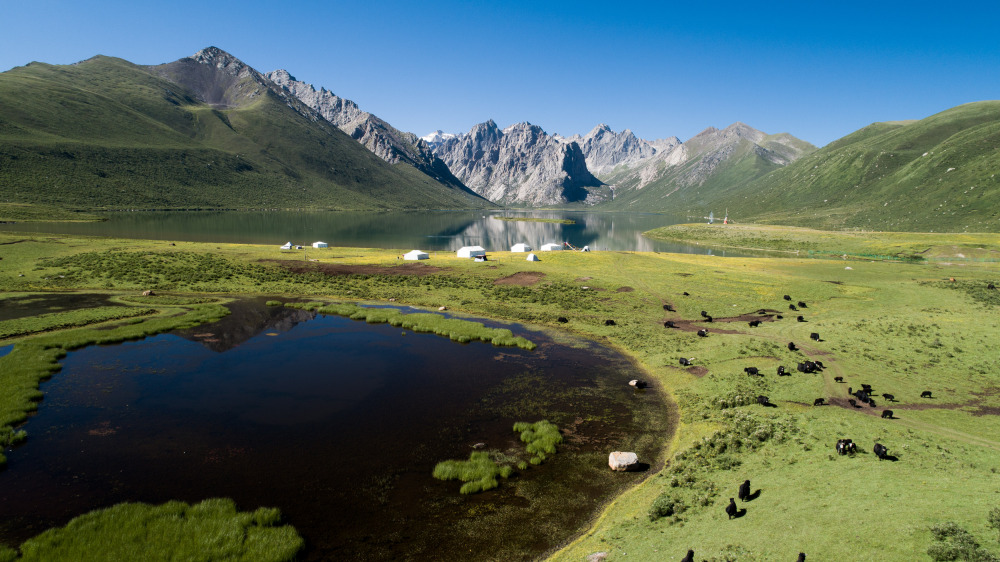China focuses on its environmental protection
- Published

China will continue adopting the most rigorous system and the harshest rule of law to protect the environment and improve climate change adaptation capacity, said Zhai Qing, vice-minister of the Ministry of Ecology and Environment.
Addressing a new conference on Friday on the sidelines of the ongoing 20th National Congress of the Communist Party of China, he said that the protection must rely on system building and the rule of law. Over the past decade, the country has revised 25 environmental laws and a comprehensive blueprint on system has come out, he said.
"We have created a series of systems that serve as beams and pillars of environmental protection," Zhai said.
These systems include environment inspection campaigns by the central government, carbon emission trade, ecological protection red line and river and lake chief system, according to Zhai.
The red lines are set for space with the most important but fragile ecological functions. Within the lines, with the strictest protection methods adopted.
The job of a river or lake chief is usually taken by local major officials who hold their original position at the same time. They are in charge of the water's pollution treatment, managing banks and supervising illegal behaviors.
Zhai added that the country has achieved a historic breakthrough in making clear the responsibility for environmental protection.
Officials in charge of a place's economic development must also take care of its environment. People in charge of companies in the sectors that may cause pollution must protect the environment. Otherwise, they will be punished for the damages, Zhai said.
Such laws and systems have achieved good results and contributed to climate change adaptation.
In 2020, China's carbon emission intensity dropped by 48.4 percent from that in 2005, exceeding the commitments made to the international community, according to Zhai.
"Climate change is a prominent global challenge, which concerns the common interests of the international community," he said.
China has made climate change adaptation its major strategy of the nation's development, he said, adding that last year, the proportion of coal in China's total energy consumption decreased to 56 percent from 72.4 percent in 2005.
Meanwhile, China's installed capacity of wind, solar, water, and biomass power generation has ranked first in the world.
"We have released a national strategy to adapt to climate change and continued to carry out pilot projects to build cities that adapt to climate change," he said.
Zhai said that the next step for environmental protection will be to implement the key thoughts generated at the 20th National Congress of the CPC, deepen the reform of systems, stick to the track of legalization to improve environment governance capacity.